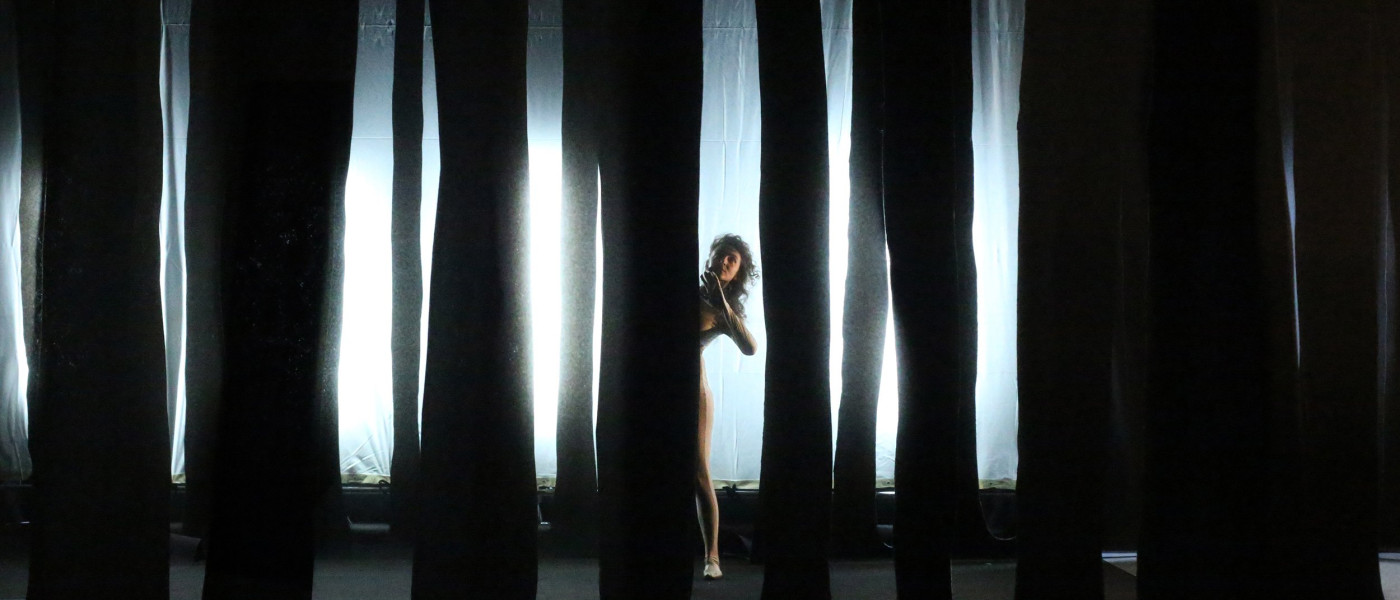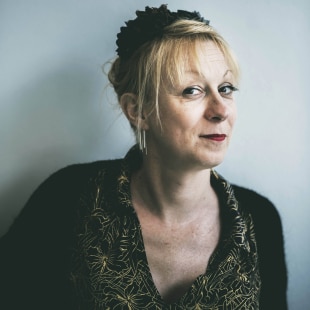Phia Ménard: fire and ice
Phia Ménard founded the Non Nova company in 1998. The name comes from two words of a Latin quote that is her motto: “We invent nothing. We just see things differently.” Her earliest works, halfway between juggling, the discipline in which she initially trained, and dance, which she gradually embraced, were immediately open to the world. But the decisive turning point came in 2008, when the piece "PPP", for Position Parallèle au Plancher (Position Parallel to the Floor) premiered at Subsistances in Lyon. Phia Ménard called this solo, which she performed herself, her “first work about ice and identity”. Based on the transition of a natural element (ice into water), it was an artistic bombshell.
The BNP Paribas Foundation’s team fell in love with her work at first sight. A close, trusting bond emerged which led to the signing in 2013 of the first three-year convention with Phia Ménard. It was since, renewed twice to support the choreographer’s work.
Extract of “PPP, Position Parallèle au Plancher” by Phia Ménard
A committed artist
"PPP" was the starting point of the project ICE (for Injonglabilité Complémentaire des Éléments, or Complementary Injugglability of the Elements) and paved the way for a series of works “with straightforward messages” and committed scenography. Examples include "Pièces du Vent"—L’après-midi d’un foehn Version 1 (“Wind Pieces—Afternoon of a Foehn Version 1”) in 2008, VORTEX and L’après-midi d’un foehn in 2011 and Os Noirs (“Black Bones”) in 2017, which form the second cycle of the ICE process, and the first Pièce d’Eau et de la Vapeur (“Water and Steam Piece”), the strongly feminist Belle d’Hier (“Yesterday’s Beauty”), in 2015. In another vein, in 2017 Phia Ménard created Maison Mère (“Mother House”), where a cardboard Parthenon expresses her “pessimism about Europe’s future”. This first part of a trilogy called Contes Immoraux (“Immoral Tales”) commissioned by Documenta 14 of Kassel will be followed by Temple Père (“Father Temple”) and La Rencontre interdite (“The Forbidden Meeting”) in 2021.
Phia Ménard considers “being in front of an audience a political act.” In 2018, she stunned the Avignon Festival with the hard-hitting Saison Sèche (“Dry Season”), a tribal trance attacking patriarchy. Whether dealing with gender assignment, male domination, refugees or threats to democracy, the choreographer says she “does things out of necessity, in reaction to what I see in society.”
Sharing and transmitting
Phia Ménard combines her fervour of attesting to our contemporary miseries with aesthetics steeped in a sense of performance and artistic cross-fertilisation. Her pieces “try to offer the audience a space of freedom where issues are approached differently, through the performer’s body, to arouse a form of empathy,” she says. The artist especially wants to share her vision and approach with all audiences. This gives the BNP Paribas Foundation an opportunity to fully play its role as a mediator with the Group’s employees or partners by organising post-performance Q&A sessions with the audience. During these special moments, Phia Ménard’s generosity and love of interaction touch people who may only rarely have the chance to experience contemporary dance. The same quality of listening and dialogue marks her relationship with the Foundation.


